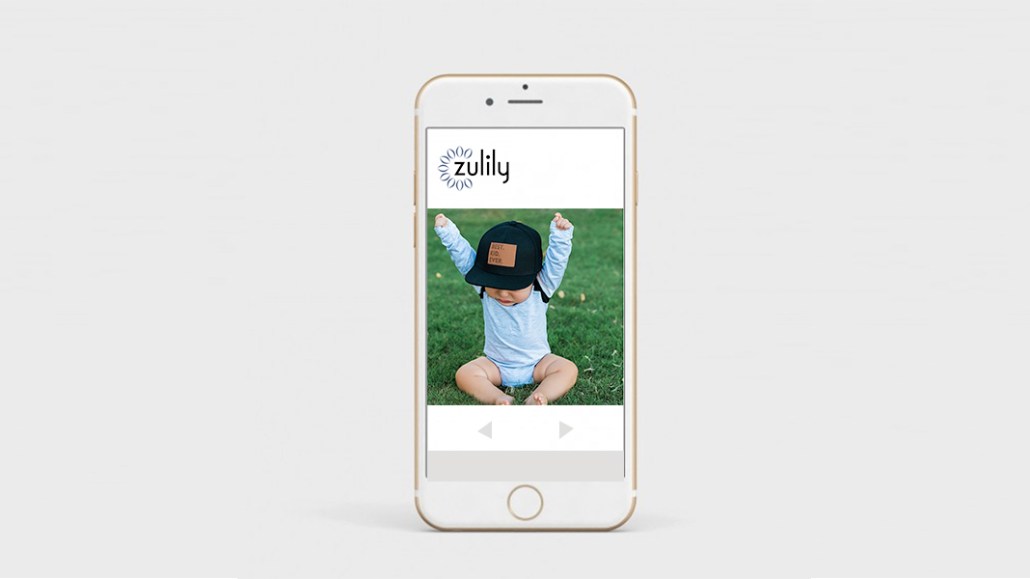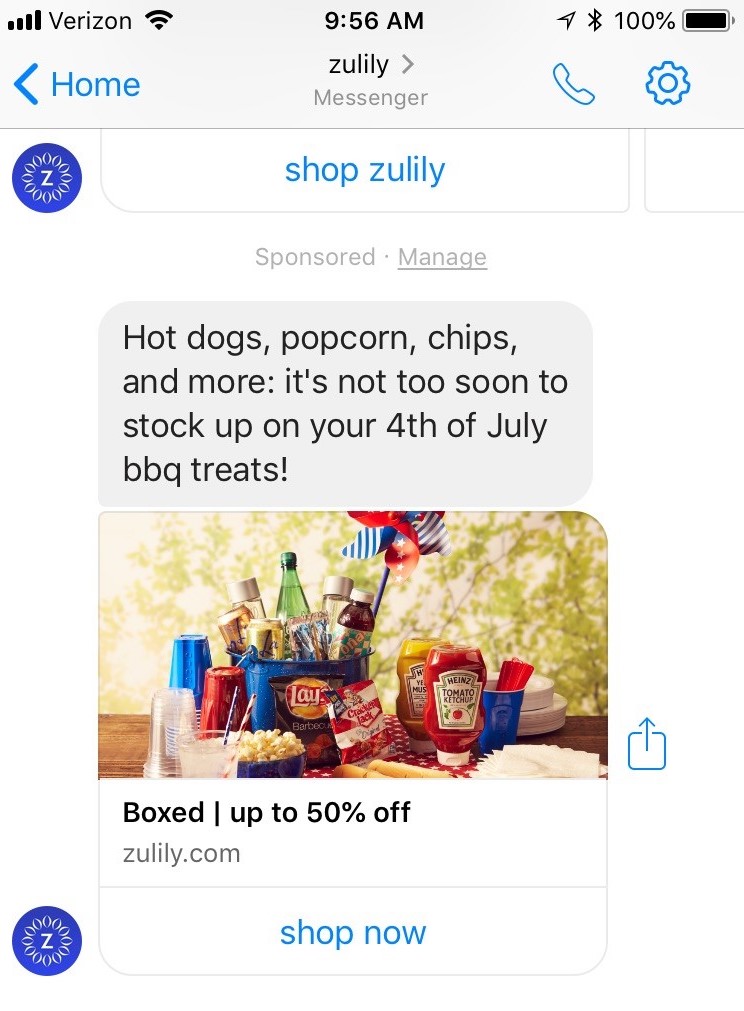Secure your place at the Digiday Media Buying Summit in Nashville, March 2-4

E-commerce company Zulily, which sells discounted clothing, toys and home products at zulily.com, is now seeing 70 percent of orders come from mobile, both from the mobile website and Zulily app. It’s an increase from 55 percent of orders coming from mobile in 2015. Zulily would not disclose the number of mobile orders or total orders it receives, but it now has 6.1 million active customers (those who have made at least one purchase in the past year) and made $1.6 billion in revenue in 2017.
Zulily is targeting customers on mobile by personalizing the type of Zulily messages, images and video content customers see as they scroll through their social feeds on their smartphones. For example, customers who have indicated that they have young boys through past purchases on zulily.com will automatically see more marketing content that advertises Zulily products for boys.
Kevin Saliba, svp of marketing at Zulily, said it takes between six and seven minutes every morning for the technology to determine the highest-converting image or creative shown to each audience segment. Saliba said this approach has increased Zulily’s mobile conversion rate “significantly,” although he would not share specific numbers.
Last year, Zulily also began using machine learning data to develop personalized messages to send through push notifications on mobile, which transformed the company’s use of Facebook Messenger. These direct messages are either updates on items being shipped or promotions for daily deals on zulily.com that fit what a particular customer might be looking for.
Zulily works with other retail companies like Boxed, Cuisinart, Dolce & Gabbana and Spanx to promote deals. The company launches around 100 72-hour sales daily and therefore has a challenge when deciding which deals to push to which customers. The machine learning technology determines which deal would most likely turn into a sale when presented to a certain audience segment. For instance, if a person had previously clicked on a Boxed product on zulily.com, the company might show them a deal the site is hosting for Boxed products through Messenger. Zulily would not reveal the audience segments it targets.

“Our unique business model requires an extreme need for access real-time, accurate and actionable data, which is where our machine learning model comes into play,” said Saliba.
Zulily operates with an internal marketing team of more than 100 people, split into different teams such as customer acquisition, creative, social and a new data science team the company established last year as analyzing data from the machine learning technology began to take precedence. With Zulily’s new analytics team studying the results of machine learning data, the company determined that launching 30 to 50 video ads a day across platforms like Facebook and Instagram is a perfect balance. This has driven a 20 percent increase in ad spending efficiency, according to Saliba. Zulily would not say how much it cost to implement machine learning and build a data analytics team.
Zulily’s latest feature might also drive more mobile orders, although machine learning doesn’t come into play. In June, Zulily introduced a feature that allows people to choose to pay for items in multiple payments, like they would through an infomercial. For example, a customer can choose to pay two payments of $10 for a $20 lipstick.
More in Marketing

Future of Marketing Briefing: AI’s branding problem is why marketers keep it off the label
The reputational downside is clearer than the branding upside, which makes discretion the safer strategy.

While holdcos build ‘death stars of content,’ indie creative agencies take alternative routes
Indie agencies and the holding company sector were once bound together. The Super Bowl and WPP’s latest remodeling plans show they’re heading in different directions.

How Boll & Branch leverages AI for operational and creative tasks
Boll & Branch first and foremost uses AI to manage workflows across teams.








